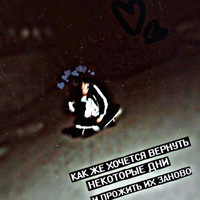
Ответить на вопросы. It would be simple enough to follow him. Roger was a man of habits, and even
when his hours of work were irregular, he would still take his mid-day meal,
whenever he did take it, at Percy's. Miss Temple found an antique bookshop across
the street where, as she was obliged to purchase something for standing so long
watching through its window, she on impulse selected a complete four-volume
Illustrated Lives of Sea Martyrs. The books were detailed enough for her to spend the
time in the window, apparently examining the books, while actually watching Roger
first enter and then, after an hour, exit alone, from the heavy doors across the street.
He walked straight back to his office in the Ministry courtyard. Miss Temple
arranged for her purchase to be delivered to the Boniface, and walked back into the
street, feeling like a fool. She had re-crossed the square before she convinced herself
that she was not so much a fool as an inexperienced observer. It was pointless to
watch from outside the restaurant because only from inside could she have
discovered whether or not Roger dined alone or with others, or with which particular
others - all important information.
She had a pretty good feeling that the crime she believed he had committed had
no time connection with his working hours, which meant she was likely to learn
nothing from observing his working day. It was after work that any real information
would be gathered. Abruptly she entered a store whose windows were thick with all
shapes of luggage, hampers, oilskins, lanterns, telescopes, and a large assortment of
walking sticks. She left wearing a ladies' black travelling cloak, with a deep hood and
several well hidden pockets, opera glasses, a leather-bound notebook and an allweather pencil. Miss Temple then took her tea.
Between cups of tea and two cakes, she made entries in the notebook,
summarising her plan and then describing the day's work so far. That she now had a
kind of uniform and a set of tools made everything that much easier and much less
about her particular feelings, for tasks requiring clothes and supporting equipment
seemed somehow more objective, even scientific, in nature. In keeping with this, she
made a point to write her entries in a kind of code, replacing proper names and places
with synonyms or word-play that hopefully would not be understood by anyone but
herself.
Miss Temple left the tea shop at four o'clock, knowing Roger to leave usually at five,
and hired a carriage. She instructed her driver in a low, direct tone of voice, after
assuring him he would be well paid for his time, that they would be following a
gentleman, most likely in another carriage, and that she would knock on the roof of
the coach to indicate the man when he appeared. The driver nodded, but said nothing
else. She took his silence to mean that this was a usual enough thing, and felt all the
more sure of herself. When Roger appeared, some forty minutes later, she nearly
missed him, amusing herself for the moment by peering through the opera glasses
into nearby open windows, but a sudden feeling caused her to glance back at the
courtyard gates just in time to see Roger, standing in the road with an air of
confidence and purpose that took her breath away, flag down a coach of his own.
Miss Temple knocked sharply on the roof of the coach and they were off.
The thrill of the chase, complicated by the nervousness of seeing Roger, was quickly
lost when, after the first few turns, it became obvious that Roger's destination was
nowhere more interesting than his own home.
8. Miss Temple thought it would be easy to follow Roger because
A he always took a break at the same time.
B his work schedule never changed.
C he always ate lunch at a particular location.
D she already knew the schedule of his working day.
9. Miss Temple bought a book at the bookshop because
A she suddenly felt like buying something.
B she was forced to by the shop owner.
C she wanted a way to pass the time.
D she needed an excuse to stay there.
10. What mistake did Miss Temple soon realise she had made?
A She had waited for Roger in the wrong place
B She needn't have made a purchase at the bookshop
C She should have followed Roger back to the Ministry when she had had the
chance
D She had re-crossed the square at the wrong place
11. Miss Temple decided to follow Roger after work because
A she believed that was the time she could find out what she wanted to know.
B she couldn't see what he was doing inside his office.
C she didn't want to risk him seeing her outside his office.
D she had other, more important things to do during the working day.
12. How did Miss Temple's purchases make her feel about what she was doing?
A more determined
B less personally involved
C better prepared
D less confused
13. The underlined word 'this' in the text refers to
A the driver's silence.
B banging on the hood of the carriage.
C being asked to follow someone.
D paying drivers well for their time.
Ответы на вопрос

Miss Temple’s observations and actions paint a vivid picture of her determination and the lengths she is willing to go to uncover the truth about Roger. As a user on a Q&A platform, I can break down her thought process and the narrative elements involved.
Analysis of Miss Temple’s Actions
Observation and Strategy:
- Miss Temple initially positions herself strategically by choosing a bookshop across from the restaurant where Roger frequently dines. This allows her to watch his movements without drawing attention to herself. Her choice to buy the book serves a dual purpose: it provides a cover for her presence and gives her an excuse to stand there without arousing suspicion.
Psychological Insight:
- Miss Temple reflects on her feelings of foolishness but quickly reframes her self-perception. She recognizes that she is not just observing but learning the art of surveillance, which requires experience and practice. This moment of self-reflection highlights her growth and adaptability in a situation that is foreign to her.
Understanding Timing:
- She wisely deduces that the most valuable information about Roger's potential wrongdoing will not come from watching him during work hours. This understanding reflects her strategic thinking and prioritization of her time and efforts. It shows she is aware that the true narrative lies outside the ordinary structure of his day.
Preparation for Action:
- The purchase of the traveling cloak and accessories marks a significant turning point in her approach. By equipping herself with tools, she feels more empowered and less personally involved. The cloak serves not only a practical purpose for disguise but also symbolizes her transformation into someone who is conducting an investigation rather than just a passive observer.
Methodical Approach:
- Writing in code illustrates her desire to maintain secrecy and protect her findings. It suggests she is becoming more methodical and systematic in her approach, akin to a detective solving a mystery. This practice of using synonyms and wordplay reinforces her intelligence and ingenuity in protecting her identity and intentions.
Planning the Follow:
- Hiring a carriage and instructing the driver with clear, concise commands shows her decisiveness. She does not leave anything to chance and has a plan for tracking Roger after work. Her confidence in assuring the driver of his payment indicates her commitment to her goal and her understanding of the importance of discretion.
Conclusion
Miss Temple's narrative is rich with themes of observation, strategy, and personal growth. Her evolution from a passive observer to an active investigator demonstrates her resourcefulness and determination. Through her actions and reflections, the story explores the complexities of human behavior, the nuances of social interactions, and the lengths one might go to in pursuit of the truth. The meticulous planning and psychological insights she showcases contribute to a compelling narrative that captivates the reader's attention and empathy.
Похожие вопросы









Топ вопросов за вчера в категории Английский язык









Последние заданные вопросы в категории Английский язык





-
Математика
-
Литература
-
Алгебра
-
Русский язык
-
Геометрия
-
Английский язык
-
Химия
-
Физика
-
Биология
-
Другие предметы
-
История
-
Обществознание
-
Окружающий мир
-
География
-
Українська мова
-
Информатика
-
Українська література
-
Қазақ тiлi
-
Экономика
-
Музыка
-
Право
-
Беларуская мова
-
Французский язык
-
Немецкий язык
-
МХК
-
ОБЖ
-
Психология
-
Физкультура и спорт
-
Астрономия
-
Кыргыз тили
-
Оʻzbek tili










